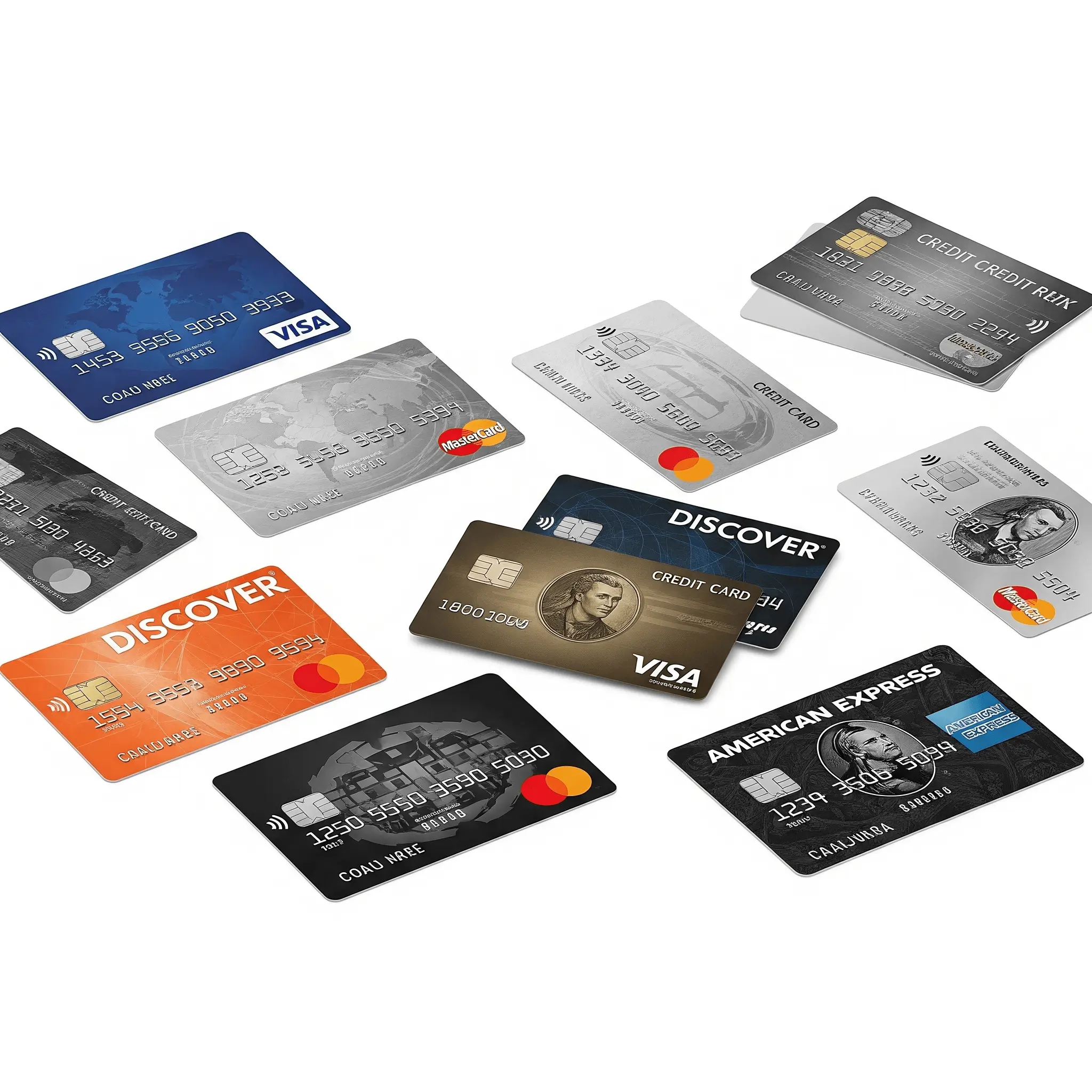Choosing a Credit Card in Canada: Your Ultimate Guide to Smart Card Selection
Published on June 17, 2025 | By WealthFusions Finance Team

With hundreds of credit cards available in Canada, selecting the right one can be overwhelming. Whether you’re a beginner looking for your first card or a seasoned user wanting better rewards or lower fees, this guide breaks down everything you need to know. We’ll explore key factors like annual fees, interest rates, rewards programs, and credit limits, and provide data-driven comparisons to help you make the best choice tailored to your financial goals.
1. Understand Your Credit Card Types
Credit cards come in several varieties, each suited to different spending habits and needs:
- Low-Interest Cards: Ideal for those who carry a balance month-to-month. These offer lower annual interest rates, often around 12-15%.
- Rewards Cards: Earn points, cashback, or travel miles on purchases. Annual fees can range from $0 to $150+ depending on benefits.
- Cashback Cards: Provide straightforward cash back on purchases, typically between 1.0% – 5.0%.
- Travel Cards: Great for frequent travelers with perks like lounge access, travel insurance, and foreign transaction fee waivers.
- Secured Cards: Designed for building or rebuilding credit, requiring a security deposit equal to your credit limit.
Tip: Match the card type with your spending habits to maximize value.
2. Compare Annual Fees & Interest Rates
Understanding the costs is critical. Below is a summary of typical fees and interest rates for popular cards in Canada (2025 data):
| Card Name | Annual Fee | Purchase APR | Cash Advance APR | Rewards | Foreign Transaction Fee |
|---|---|---|---|---|---|
| RBC Avion Visa | $120 | 19.99% | 22.99% | Travel points, 1.25x on flights | 2.5% |
| Scotiabank Momentum Visa | $0 | 19.99% | 22.99% | 4% cashback on groceries & bills | 2.5% |
| American Express Cobalt | $155 | 20.99% | 23.99% | 5x points on dining & groceries | 2.5% |
| TD Cash Back Visa | $0 | 19.99% | 22.99% | 3% cashback on groceries | 2.5% |
| Capital One Guaranteed Secured | $59 | 19.99% | 22.99% | None | 2.5% |
Note: APR = Annual Percentage Rate. The purchase APR applies if you carry a balance. Paying your balance in full each month avoids interest charges.
3. Evaluate Rewards Programs & Redemption Options
Look beyond points or cashback rates. Key factors to check:
- Redemption flexibility: Can you redeem points for travel, statement credits, merchandise, or gift cards?
- Point expiry: Points may expire after 12-36 months of inactivity.
- Category bonuses: Some cards reward specific spending categories more generously.
- Transfer partners: Travel cards may allow point transfers to airline or hotel loyalty programs.
Example: The American Express Cobalt card’s 5x points on food and drinks are highly valued for urban professionals.
4. Check Foreign Transaction Fees and Travel Benefits
If you travel internationally or shop online from foreign retailers, foreign transaction fees can add up quickly:
- Most Canadian credit cards charge a 2.5% fee on foreign currency transactions.
- Travel cards like TD First Class Travel or BMO World Elite waive this fee entirely.
- Additional perks may include travel insurance, lounge access, and concierge services.
5. Assess Credit Limits & Qualification Requirements
Your approved credit limit impacts your purchasing power and credit utilization ratio. Some tips:
- New credit users often start with $500-$1,000 limits.
- Higher credit scores and income usually result in higher limits (e.g., $5,000+).
- Secured cards require a security deposit equal to the credit limit.
- Regularly review and request limit increases to improve credit score over time.
6. Understand Fees Beyond Annual Charges
Watch out for common fees that can erode benefits:
- Late payment fees: Typically $29-$39 per missed payment.
- Cash advance fees: Around 3% of the amount advanced plus high interest starting immediately.
- Balance transfer fees: Usually 1-3% of transferred amount.
Pro tip: Pay bills on time and avoid cash advances to minimize these costs.
7. Read Reviews & Consider Customer Service Quality
Good customer support makes a difference when issues arise:
- Look for cards backed by banks with 24/7 phone and chat support.
- Review complaint stats from Financial Consumer Agency of Canada.
- Check user reviews on sites like Ratehub, CreditCards.ca, and Reddit.
8. Use Promotional Offers Wisely
Many cards offer sign-up bonuses like:
- Bonus points worth $200–$500 after spending a minimum in first 3 months.
- 0% APR on balance transfers or purchases for 6-12 months.
Warning: Read terms carefully to avoid penalties after promo periods.
Conclusion & Call to Action
Choosing the right credit card in Canada means aligning your lifestyle with the card’s benefits, fees, and rewards. Start by identifying your spending patterns and credit history, then use our comparisons to narrow your options. Always read the fine print and leverage introductory offers smartly.
Visit today for personalized credit card recommendations and maximize your financial potential!
Frequently Asked Questions
- 1. How do I build credit with my first credit card?
- Use it responsibly by making small purchases and paying off the balance in full every month.
- 2. What is a secured credit card?
- A card backed by a refundable security deposit, used to build or rebuild credit history.
- 3. Can I have multiple credit cards?
- Yes, but manage them carefully to avoid debt and credit score impacts.
- 4. How do rewards points work?
- You earn points per dollar spent; points can be redeemed for cashback, travel, or merchandise.
- 5. Are balance transfers worth it?
- They can save interest if you pay off the balance before the promo ends and watch out for fees.
- 6. What happens if I miss a payment?
- You’ll incur late fees, higher interest rates, and possible credit score damage.
- 7. Do credit cards affect my credit score?
- Yes, they impact your credit utilization ratio, payment history, and credit mix.
- 8. How do I avoid foreign transaction fees?
- Use cards with no foreign transaction fees or pay in local currency when abroad.

